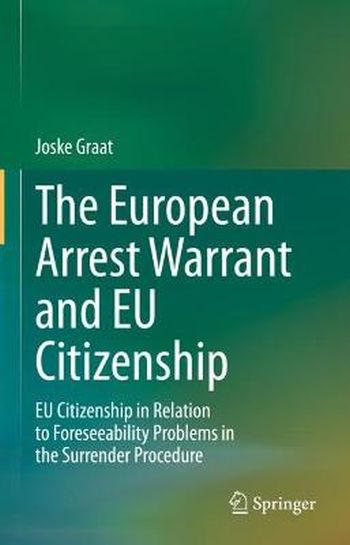
This book offers an in-depth analysis of the relationship between EU citizenship, the European arrest warrant (EAW), and the legality principle. It focuses on the role of the EAW in relation to two foreseeability problems with which EU citizens - especially those who exercise free movement rights - could be confronted. These problems concern the foreseeability of specific national criminal laws at the time of the offense on the one hand and forum decisions on the other. The first part of the book addresses the extent to which these foreseeability problems and the role of the EAW therein are viewed as legality problems at the EU level and in three national legal orders (the Netherlands, Germany, and England and Wales).
In turn, the second part of the book critically examines the current scope and content of the legality principle in light of the EU's objective to offer its citizens an Area of Freedom, Security and Justice (AFSJ) in which both safety and free movement are guaranteed. As EU citizens often encounter foreseeability problems when exercising their free movement rights, it is argued that they should be protected by a transnational framework of fundamental rights. The book subsequently makes recommendations for a transnational interpretation of the legality principle, one which fits the normative context of the AFSJ as described in Article 3(2) TEU. On the basis of the evolution of EU citizenship over time, the book also develops two EU citizenship narratives and explains how they could contribute to transnational fundamental rights protection and a solution to foreseeability problems. With regard to arriving at concrete solutions, the book offers recommendations for EU legislation that could adequately remedy foreseeability problems and the role of the EAW therein.